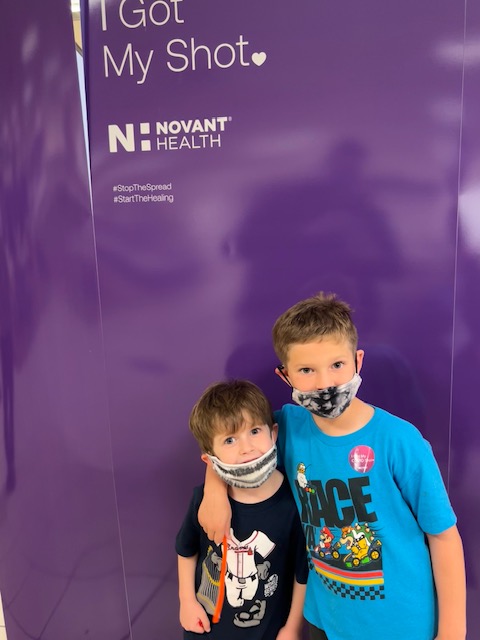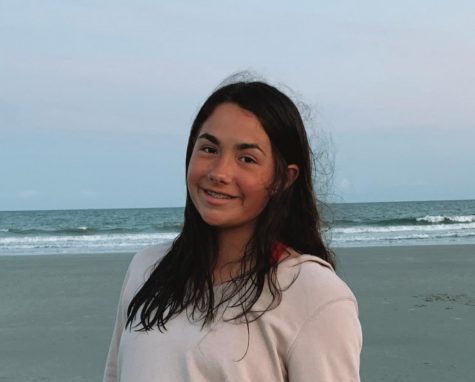Teachers thankful for increased vaccine availability
Parents consider pros, cons of vaccinating younger children
December 15, 2021
As of late October, children ages 5-11 are now eligible to get the COVID-19 vaccine. With over 6 million cases of COVID in children and 1.1 million new cases in September alone, the CDC decided it was time to come up with a plan for vaccinating the younger generations.
Safety is the No.1 priority, but there are many other positive effects of the new vaccine availability. Vaccinating young children can help to keep them in school, as well as safely participating in sports, playdates and other activities.
“In my opinion, this vaccine saves lives,” said dance teacher Molly Harwell. “I am thankful to protect my oldest child and look forward to when my 3-year-old is better protected as well.”
Pfizer-BioNTech is the only vaccine available for this age group and has not yet shown any serious side effects. The vaccine dose for 5-11 year olds is only 10 micrograms, which is one-third of the dose given to teenagers and adults.
However, the vaccine designed for young kids is not interchangeable with the vaccine for those over the age of 12. The vaccines for different age groups are diluted differently.
Vaccinating one’s children can reduce the risk of getting infected by COVID, which means less chance of having to quarantine and less stress for parents calling out of work. For teachers, finding a substitute to fill in for their classes is extremely difficult due to the current shortage of substitutes.
“The protocol for quarantine is quite stressful as a parent and a teacher,” Harwell said. “It’s especially hard since few substitutes jump at the opportunity to cover a dance class.”
Pfizer’s trial included 2,268 children. According to data from this trial, the vaccine was 90.7% effective in preventing symptomatic COVID, and an increase in antibodies.
Despite the vaccine being proven helpful, some still have worries and hesitations toward vaccinating their young ones.
“My choice to vaccinate my children was not a choice made lightly,” said AP Language and Composition teacher Michaela Colon, a mother to three boys. “My husband and I read as much as we could about the virus, its effects on young children, the vaccine and the vaccine’s potential effects on young children.”
According to the CDC, the number of COVID cases in children, with or without symptoms, is rising. Anyone infected with COVID is a potential source of infection, and can spread the virus to those who are more heavily affected.
Although children do not tend to have as severe symptoms as adults, vaccinating younger children is an important part of getting this world back to “normal.”
“I feel like a new man,” said Speer Bryant, 7, after receiving his second vaccine. Speer is the son of Reagan English teacher Amber Bryant.


